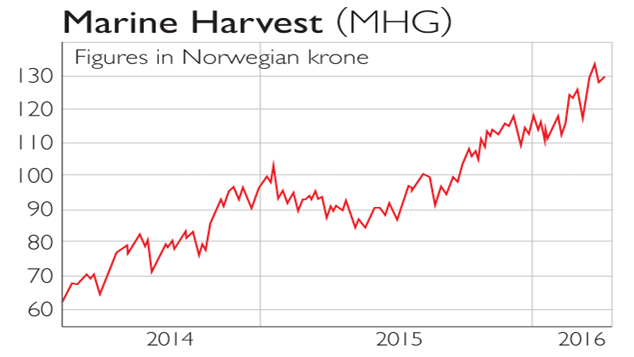Land this fish stock
Salmon prices are leaping – which is great news for smart fish farms, says Alex Williams.
Get the latest financial news, insights and expert analysis from our award-winning MoneyWeek team, to help you understand what really matters when it comes to your finances.
You are now subscribed
Your newsletter sign-up was successful
Want to add more newsletters?

Twice daily
MoneyWeek
Get the latest financial news, insights and expert analysis from our award-winning MoneyWeek team, to help you understand what really matters when it comes to your finances.

Four times a week
Look After My Bills
Sign up to our free money-saving newsletter, filled with the latest news and expert advice to help you find the best tips and deals for managing your bills. Start saving today!

Salmon prices are leaping which is great news forsmart fish farms, says Alex Williams.
Shares in salmon farms are up thanks to algae. Unusually high temperatures in the Pacific Ocean have caused an outbreak of algae along Chile's coast, destroying stock at its largest fish farms, driving up prices and profits for Atlantic producers. The algae has killed more than 23 million fish, potentially reducing Chilean exports by 15%-20% this year.
Salmon prices have leapt 25% to $5 a pound as a result. It's not just about algae, says fund manager Senhouse. Demand is steadily rising, but northern European supply is being squeezed, with fish farmers in Norway and Scotland operating at "close to full capacity".
MoneyWeek
Subscribe to MoneyWeek today and get your first six magazine issues absolutely FREE

Sign up to Money Morning
Don't miss the latest investment and personal finances news, market analysis, plus money-saving tips with our free twice-daily newsletter
Don't miss the latest investment and personal finances news, market analysis, plus money-saving tips with our free twice-daily newsletter
Salmon farms in Norway, the world's top exporter, face rising regulation to avoid the spread of disease. That has slowed the opening of new farms. Marine Harvest (Oslo: MHG), the biggest fish farmer in the Atlantic, plans to open a new £80m feed factory on the Isle of Skye, but is closing smaller sites in Scotland, consolidating production and trimming jobs. Regulation has limited competition from smaller firms and the biomass of Atlantic salmon is down 7% in the last year, says Norway's Seafood Council.
With annual revenue of $3bn to $4bn, Marine Harvest is the industry giant and is cashing in on higher prices. But the fish market tends to be choppy. Prices were rocked in 2015 by a Russian ban on European food imports. As the algae outbreak shows, aquaculture is a delicate business. The industry is also capital intensive, so reinvestment rates are high, meaning cash flows tend to be bumpy.
The long-term trend is bullish, says Lex in the Financial Times. More people are eating more protein, a rising share of which comes from fish. Farming is essentially about converting animal feed into meat, but the "special appeal" of fish over beef or pork is the efficiency of that process. Marine Harvest converts 1.5kg of fish feed into 1kg of salmon. That compares to a ratio of five-to-one for cattle and three-to-one for pigs. Salmon could stay expensive for a while. At less than 14 times earnings, shares in Marine Harvest look like the best way to invest in the sector.
Get the latest financial news, insights and expert analysis from our award-winning MoneyWeek team, to help you understand what really matters when it comes to your finances.
-
 Should you buy an active ETF?
Should you buy an active ETF?ETFs are often mischaracterised as passive products, but they can be a convenient way to add active management to your portfolio
-
 Power up your pension before 5 April – easy ways to save before the tax year end
Power up your pension before 5 April – easy ways to save before the tax year endWith the end of the tax year looming, pension savers currently have a window to review and maximise what’s going into their retirement funds – we look at how